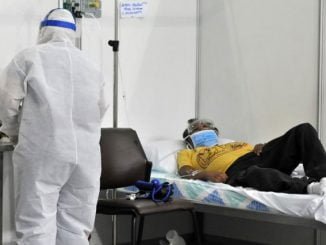
Kampala, Uganda | By Michael Wandati | The Ministry of Health (MOH) in Uganda has launched a new initiative providing medication to HIV-negative men who engage in sex irregularly, aimed at preventing HIV infection.
This program, known as Event-Driven Pre-Exposure Prophylaxis (ED-PrEP), is specifically designed for men who have infrequent sexual encounters but face significant risk of contracting HIV.
Dr. Herbert Kadama, who coordinates PrEP initiatives at the Ministry of Health, explained that the ED-PrEP program was initially tested in September of the previous year, with 841 men participating.
The procedure involves taking two oral PrEP tablets at least two hours prior to sexual activity, followed by a daily tablet for two consecutive days post-encounter.
Dr. Kadama noted that this method has been well-received, particularly by men with visiting partners or occasional sexual encounters. By April, the program had expanded to include 4,000 participants, offering a preventive measure that doesn’t require ongoing medication use.
Although Uganda’s HIV prevalence rate stands at 5.1 per cent, with a slightly lower rate of 4.3 per cent among men, healthcare providers are encountering difficulties in ensuring that HIV-positive men start and consistently adhere to treatment. Such adherence is vital for suppressing viral loads and promoting public health.
Dr. Daniel Byamukama, who leads HIV prevention efforts at the Uganda AIDS Commission (UAC), emphasized the importance of this new prevention strategy.
He pointed out that decreasing HIV infections among men could indirectly reduce transmission rates among young women, given that men often hold more influence in sexual decision-making.
Also Read: Uganda to introduce long-acting HIV prevention injections
Data from the UAC indicates that HIV incidence among men remains concerning, with 11,000 new cases reported last year. Alarmingly, in 2023, 34 per cent of men surveyed admitted to having sex with someone other than their wife or live-in partner, compared to just 10 per cent of women.
Dr. Byamukama also expressed concern over the low adoption of other HIV prevention methods among men. For instance, only 3% of men in multiple sexual relationships reported using condoms during their last sexual encounter.
Additionally, while voluntary medical male circumcision, which has been shown to reduce HIV risk by up to 60 per cent, has been available since 2010, only 56 per cent of men have opted for the procedure.



